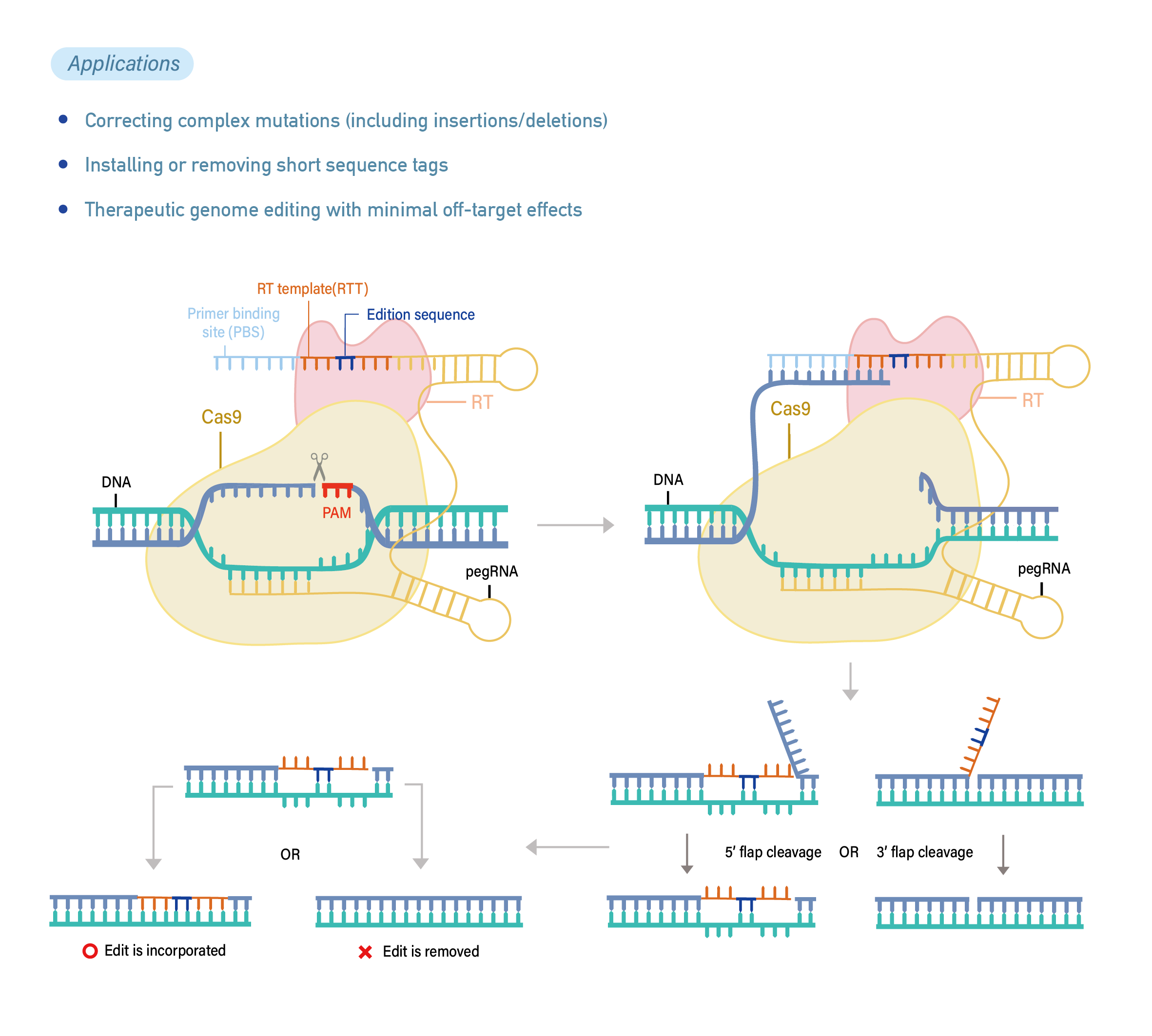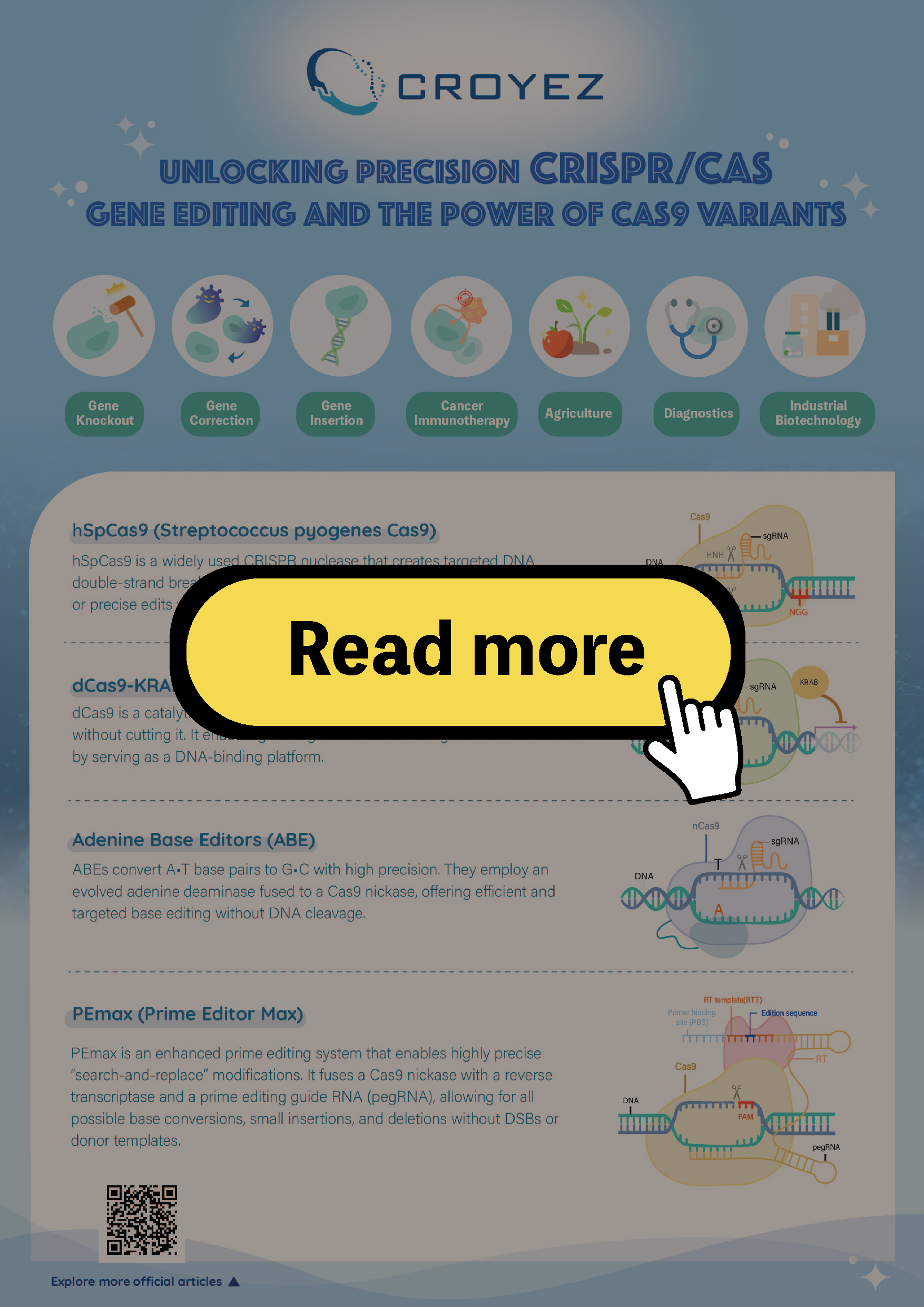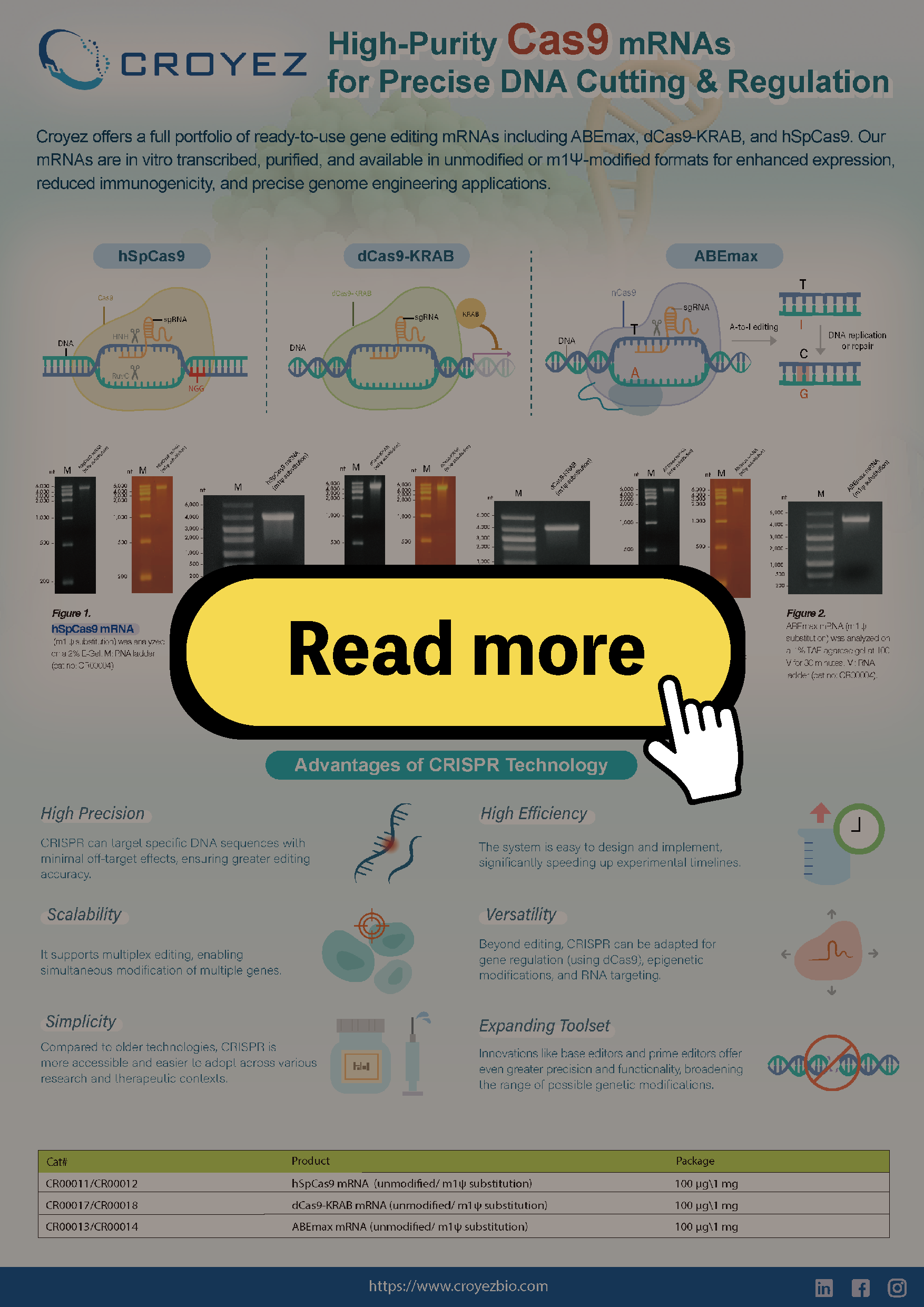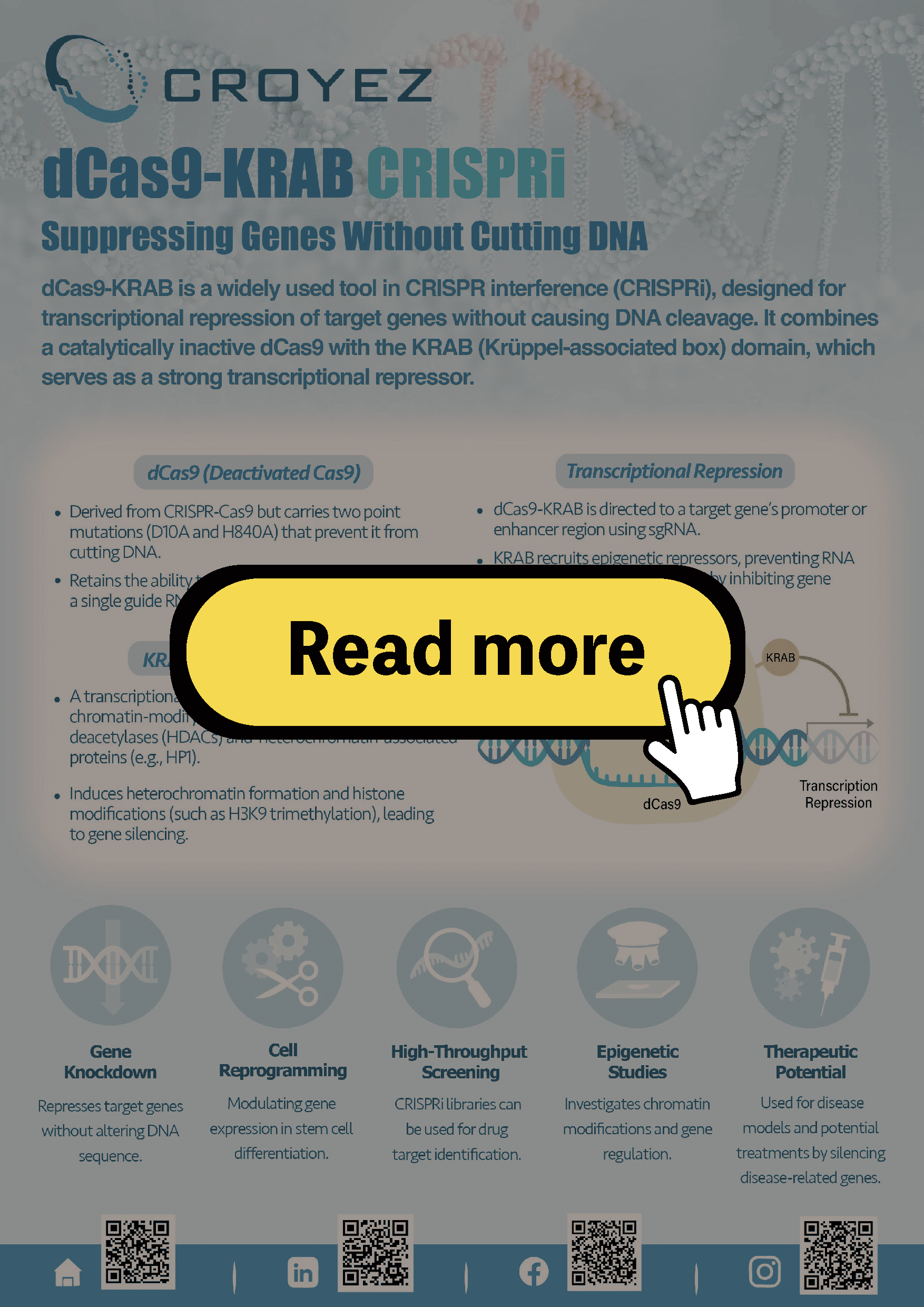The Power of Cas9 Variants (All Gene Editing Tools)
2025-04-14
The Power of Cas9 Variants
The CRISPR technology landscape has evolved significantly, introducing various tools for precise genome editing and regulation. Here’s a detailed overview of some key components:
1. SpCas9 (Streptococcus pyogenes Cas9)
Function:
SpCas9 is the most widely used CRISPR-associated protein for genome editing. It acts as a nuclease that introduces double-strand breaks (DSBs) in DNA at specific locations guided by a single guide RNA (sgRNA). This mechanism allows for targeted gene disruption or the introduction of new genetic material through DNA repair processes like non-homologous end joining (NHEJ) or homology-directed repair (HDR).

2. Cas12a (formerly Cpf1)
Function:Cas12a is a CRISPR-associated endonuclease distinct from Cas9. It recognizes T-rich PAM sequences (typically TTTV) and introduces staggered DSBs with 5' overhangs. It uses a single crRNA (without the need for tracrRNA), and its sticky-end cuts facilitate certain types of precise DNA insertion.

3. dCas9 (Dead Cas9)
Function:dCas9 is a catalytically inactive version of Cas9 that binds to target DNA without cutting it. It enables gene regulation rather than genome modification by serving as a DNA-binding platform.

4. Cytosine Base Editors (CBE)
Function:CBEs enable conversion of C•G base pairs to T•A without inducing DSBs. They consist of a cytidine deaminase enzyme fused to dCas9 or a Cas9 nickase. The edit occurs within a defined window of the target site.

5. Adenine Base Editors (ABE)
Function:
ABEs convert A•T base pairs to G•C with high precision. They employ an evolved adenine deaminase fused to a Cas9 nickase, offering efficient and targeted base editing without DNA cleavage.

6. PEmax (Prime Editor Max)
Function:PEmax is an enhanced prime editing system that enables highly precise “search-and-replace” modifications. It fuses a Cas9 nickase with a reverse transcriptase and a prime editing guide RNA (pegRNA), allowing for all possible base conversions, small insertions, and deletions without DSBs or donor templates.

.png)
PRODUCTS: ARTICLE:





